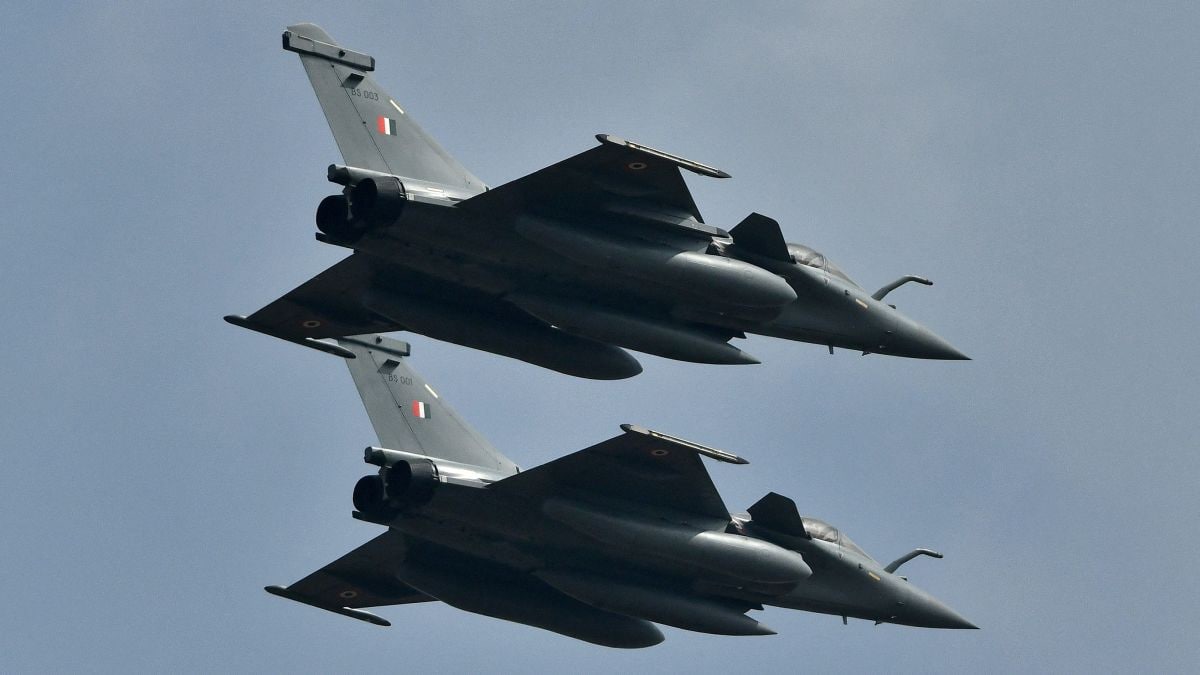Dassault CEO Éric Trappier has dismissed Pakistan’s claim of downing Indian Rafale jets during Operation Sindoor as inaccurate. He defended Rafale’s combat performance, calling it superior to the F-35 in versatility and unmatched in real-world mission readiness.read more
Dassault Aviation CEO Éric Trappier has dismissed as “inaccurate” Pakistan’s claims that it shot down three Indian Rafale fighter jets during the recent military flare-up under Operation Sindoor. His statement comes just days before the Paris Air Show and amid heightened global scrutiny of modern fighter jet performance in real-world combat.
Speaking to French magazine Challenges, Trappier addressed the Pakistani statement head-on, saying: “The reports of Indian Rafales being lost are not accurate.” He asserted confidence in the Rafale’s capabilities, underlining its operational excellence and battlefield survivability.
Trappier, while refraining from directly commenting on the operational specifics of the India-Pakistan skirmish, reaffirmed the Rafale’s status as a world-class fighter aircraft. “It’s always difficult to say we’re the best in absolute terms, but I believe we offer the best compromise,” he said. “If you want a single aircraft capable of air-to-air combat, reconnaissance, ground strikes, nuclear deterrence, and aircraft carrier deployment, Rafale is unmatched.”
He said that in a confrontation with a US F-22, the Rafale might face challenges due to the F-22’s stealth and air-superiority edge. “But if you’re looking at versatility and real-world mission readiness, Rafale is superior to the F-35 and far better than anything China currently offers,” Trappier added.
Pakistan’s Defence Minister Khawaja Muhammad Asif had earlier told Bloomberg Television that Pakistani forces had downed five Indian aircraft—including three Rafales—and captured several Indian soldiers following India’s retaliatory airstrikes in late April. The strikes were part of Operation Sindoor, launched by New Delhi in response to the April 22 terror attack in Pahalgam, Jammu & Kashmir.
“They have taken the initiative, we have just responded,” Asif said, adding that Pakistan’s actions were purely retaliatory. However, he did not provide concrete evidence to support the claim of downing the Indian jets or capturing Indian troops.
The brief but intense military exchange that followed the Pahalgam attack was one of the most severe between India and Pakistan in recent decades. It culminated in a ceasefire understanding after Pakistan’s Director General of Military Operations (DGMO) reached out to his Indian counterpart. India’s air campaign reportedly struck multiple Pakistani airbases in a significant escalation between the two countries.
Indian defence sources have said that while there were some Indian losses, the IAF inflicted substantial damage on Pakistan’s air assets. The IAF reportedly destroyed six Pakistani fighter jets, two surveillance aircraft, a C-130 transport plane, over 30 missiles and multiple drones during the four-day conflict.
Rafale fighter jets, manufactured by France’s Dassault Aviation, have become a cornerstone of India’s air power since their induction in 2020.
